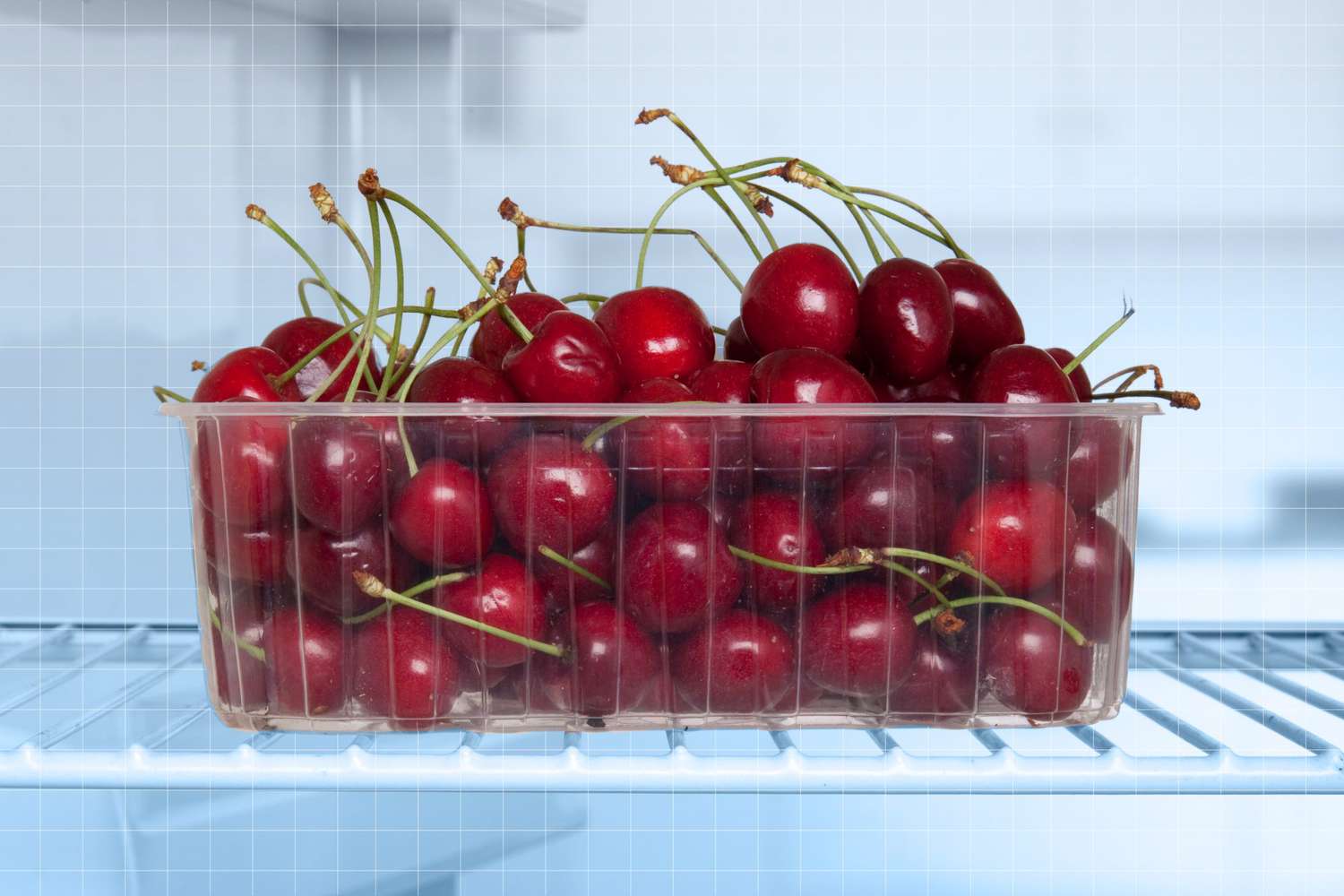

Articles
How To Store Cherries In The Fridge
Modified: February 23, 2024
Learn the best methods for storing cherries in the fridge to keep them fresh and delicious for longer. Read our articles now!
(Many of the links in this article redirect to a specific reviewed product. Your purchase of these products through affiliate links helps to generate commission for Storables.com, at no extra cost. Learn more)
Introduction
Welcome to the world of cherries! These juicy, vibrant fruits are not only delicious but also packed with nutrients. Whether you’ve picked a fresh batch yourself or purchased them from a local store, knowing how to store cherries in the fridge is essential to ensure their longevity and retain their flavor.
Cherries are highly perishable, and improper storage can lead to spoilage and loss of quality. By following a few simple steps, you can keep your cherries fresh and tasty for an extended period, allowing you to enjoy their natural sweetness at your convenience.
In this article, we will guide you through the process of selecting the right cherries, preparing them for refrigeration, and storing them properly so that you can savor their deliciousness for as long as possible. We will also share some helpful tips and common mistakes to avoid. Let’s get started!
Key Takeaways:
- Properly storing cherries in the fridge preserves their freshness and flavor. Choose, prepare, and store cherries correctly to extend their shelf life and savor their juicy goodness. Enjoy the taste of summer all year round!
- Avoid common mistakes when storing cherries to maintain their quality. Keep cherries in the fridge, away from ethylene-producing fruits, and consider freezing for longer storage. Cherries are best enjoyed fresh for optimal flavor and nutrition.
Read more: How To Store Cherry Tomatoes In The Fridge
Choosing the Right Cherries
When it comes to choosing cherries, it’s important to pick ones that are at their peak of freshness and flavor. Here are some tips to help you select the best cherries:
- Look for firmness: Choose cherries that are plump, firm, and free from any signs of softness or wrinkling. These are indicators of freshness.
- Check the color: Cherries come in various shades, such as bright red, dark red, or even yellow. The color should be rich and vibrant, with no greenish tints. Keep in mind that different cherry varieties have different color profiles.
- Inspect the stem: The stem of the cherry should be firmly attached and have a fresh, green appearance. Avoid cherries with stems that are dried out or brown.
- Consider the size: Cherries come in different sizes, and there’s no right or wrong when it comes to choosing the size. However, larger cherries tend to have a sweeter taste, while smaller ones can be equally delicious with a more concentrated flavor.
- Smell and taste: If possible, take a moment to smell the cherries. They should have a sweet and inviting aroma. If allowed, sample a cherry to assess its taste. Sweetness and juiciness are key indicators of quality.
Remember that cherries have a relatively short season, typically from late spring to early summer, depending on your location. Take advantage of this limited window and choose cherries that are at the peak of their freshness to maximize flavor and enjoyment.
Preparing Cherries for Refrigeration
Before storing cherries in the fridge, it’s essential to properly prepare them to ensure optimal longevity and taste. Here are the steps to follow:
- Sort and remove any damaged cherries: Inspect your cherries and remove any that show signs of bruising, mold, or rot. Damaged cherries can spoil the others more quickly, so it’s best to discard them.
- Rinse the cherries: Gently rinse the cherries with cool water to remove any dirt or residue. Avoid soaking them as this can make them more prone to absorbing water and becoming mushy.
- Drain and dry the cherries: After rinsing, place the cherries in a colander or on a clean towel to drain excess water. Pat them dry with a paper towel to remove any remaining moisture.
- Remove the stems: Using a small knife or your fingers, gently twist and remove the stems from each cherry. This step is optional, but it can make eating the cherries more convenient later on.
- Optional: Pit the cherries (if desired): Depending on your preference, you may choose to remove the pits from the cherries. This step is particularly useful if you plan to use the cherries in recipes or snacks where pits can be inconvenient or undesirable.
By properly preparing the cherries, you not only ensure their cleanliness but also reduce the risk of spoilage and decay while in the fridge. Once you’ve completed these steps, it’s time to move on to storing the cherries in the refrigerator.
Storing Cherries in the Fridge
The refrigerator is the best place to store cherries as it helps to slow down the ripening process and extends their shelf life. Here’s how to store cherries in the fridge effectively:
- Choose the right container: Place the prepared cherries in a clean, airtight container. You can use a resealable plastic bag or a food storage container with a tight-fitting lid. Make sure the container is large enough to accommodate the cherries without overcrowding them.
- Line the container with paper towels: To absorb excess moisture and prevent the cherries from sitting in their own juices, line the container with a layer of paper towels. This helps maintain the fruit’s quality by minimizing the risk of spoilage.
- Arrange the cherries in a single layer: Place the cherries in a single layer inside the container. Avoid stacking or overcrowding them, as this can lead to bruising and faster deterioration.
- Seal and store in the fridge: Once the cherries are arranged, seal the container tightly. Store it in the refrigerator, preferably in the crisper drawer where the temperature is slightly higher and more stable.
- Keep the cherries dry: Moisture can accelerate the decay process, so it’s essential to keep the cherries as dry as possible. Avoid washing them again before consumption, as this can introduce additional moisture.
It’s worth noting that cherries are sensitive to the smells of other foods in the fridge. To prevent the cherries from absorbing any unwanted odors, you can store them in a separate compartment or use an odor-absorbing product like baking soda.
Stored properly in the fridge, cherries can stay fresh for up to one week, retaining their flavor and texture. Remember to check them periodically for any signs of spoilage and discard any cherries that show mold, shriveling, or an off-putting smell.
Store cherries in the fridge in a perforated plastic bag to allow air circulation. Keep them unwashed and remove any spoiled cherries to prevent the spread of mold.
Tips for Extending Cherry Shelf Life
To maximize the shelf life of cherries and keep them fresh for as long as possible, here are some additional tips and tricks:
- Leave the stems intact: Keeping the stems attached to the cherries can help slow down their decay. The stems help limit moisture loss and prevent air from entering the cherries, which can lead to faster spoilage.
- Don’t wash cherries until ready to eat: As mentioned earlier, excess moisture can accelerate spoilage. It’s best to avoid washing the cherries until you are ready to consume them. This helps preserve their natural protective coating and reduces the risk of mushiness.
- Store unwashed cherries in a perforated bag: If you prefer to store cherries loose instead of in a container, consider placing them in a perforated bag. The holes allow for better airflow and help prevent moisture buildup.
- Keep cherries away from ethylene-producing fruits: Ethylene is a natural gas that fruits produce as they ripen, and it can cause nearby fruits to ripen and spoil faster. Keep cherries away from fruits like apples, bananas, and peaches, as well as vegetables like onions and potatoes, to prevent them from deteriorating quickly.
- Consider freezing cherries for longer storage: If you’ve purchased or harvested a large quantity of cherries and want to enjoy them beyond their usual shelf life, freezing is a great option. To freeze cherries, wash, pit if desired, and spread them out on a baking sheet lined with parchment paper. Place the sheet in the freezer until the cherries are frozen solid, then transfer them to a freezer-safe bag or container. Frozen cherries can last for several months.
- Use slightly underripe cherries for cooking: If you plan to use cherries for cooking or baking, slightly underripe fruit is a good choice. Underripe cherries hold up better during cooking and maintain their shape and texture.
By following these tips, you can prolong the shelf life of cherries and enjoy their deliciousness over an extended period. Remember that cherries are at their peak of flavor and nutrition when fresh, so it’s best to consume them as soon as possible for the best tasting experience.
Read more: How To Store Cherries
Common Mistakes to Avoid
When it comes to storing cherries in the fridge, there are a few common mistakes that people often make. By avoiding these errors, you can ensure that your cherries stay fresh and flavorful for as long as possible:
- Leaving cherries unwashed: While it’s important not to wash cherries until you’re ready to eat them, it’s equally essential to rinse them before storing. Leaving cherries unwashed can lead to the growth of bacteria and mold, accelerating their decay.
- Not removing damaged cherries: One bad cherry can quickly spoil the rest. Before storing, it’s crucial to sort through your cherries and remove any damaged or moldy ones. These cherries can contaminate the others and cause them to deteriorate at a faster rate.
- Storing cherries in open containers: Storing cherries in open containers or without proper sealing exposes them to air and moisture. This can lead to a loss of quality and faster spoilage. Always use airtight containers or resealable bags to keep cherries fresh.
- Overcrowding the cherries: Cherries need space to breathe and avoid being crushed. Overcrowding the container can lead to bruising and faster decay. Arrange the cherries in a single layer or use multiple containers if needed.
- Storing cherries at the wrong temperature: Cherries should be stored in the refrigerator at a temperature between 32°F (0°C) and 40°F (4°C). Storing them at a higher temperature, such as on the countertop, can cause them to rot quickly.
- Allowing cherries to become overly ripe before refrigeration: Cherries have a relatively short shelf life, and allowing them to become overly ripe before refrigerating them can result in a shorter storage time. Aim to refrigerate cherries as soon as you bring them home to preserve their freshness.
Avoiding these common mistakes will go a long way in maintaining the quality and taste of your cherries. With proper storage and handling, you can enjoy these delectable fruits for an extended period.
Frequently Asked Questions (FAQs)
Here are some common questions about storing cherries in the fridge:
- Can I store cherries at room temperature instead of in the fridge?
While cherries can be stored at room temperature for a short period, they will spoil much faster compared to refrigeration. To maximize their shelf life, it’s best to store cherries in the fridge. - How long can I store cherries in the fridge?
When stored properly in the fridge, cherries can stay fresh for up to one week. However, their quality may start to deteriorate after a few days, so it’s best to consume them as soon as possible. - Can I freeze cherries?
Yes, cherries can be frozen for longer storage. Wash and pit the cherries, spread them out on a baking sheet, freeze them until solid, and then transfer them to a freezer-safe bag or container. Frozen cherries can last for several months. - Do I need to wash cherries before storing them in the fridge?
It’s recommended to rinse cherries before storing them to remove any dirt or residue. However, make sure to dry them thoroughly before placing them in the fridge to prevent excess moisture and mold growth. - Can I store cherries with other fruits and vegetables in the fridge?
Cherries are sensitive to ethylene gas, which is produced by certain fruits and vegetables during the ripening process. To avoid accelerated ripening and spoilage, it’s best to store cherries separately from ethylene-producing produce like apples, bananas, and peaches.
If you have any additional questions or concerns about storing cherries, it’s always helpful to consult local fruit experts or your nearest agricultural extension office for specific recommendations based on your location and cherry variety.
Conclusion
Properly storing cherries in the fridge is key to preserving their freshness, flavor, and texture. By following the right techniques and avoiding common mistakes, you can extend the shelf life of cherries and enjoy their juicy goodness for longer periods. Remember to choose the right cherries, prepare them correctly, and store them in clean, airtight containers lined with paper towels to absorb excess moisture.
Additionally, keeping cherries in the refrigerator at the appropriate temperature and away from ethylene-producing fruits can help maintain their quality. If you have an abundance of cherries, consider freezing them for even longer storage. However, it’s important to note that cherries are best enjoyed fresh, so aim to consume them within a week for the best flavor and nutritional value.
By understanding the proper techniques for storing cherries, you can make the most of this delicious fruit when it’s in season. Whether you plan to enjoy cherries as a refreshing snack, use them in recipes, or create delightful desserts, the right storage methods will ensure that you can savor the natural sweetness and vibrant color of cherries for as long as possible.
So go ahead, pick some fresh cherries, follow these guidelines, and enjoy the taste of summer all year round!
Frequently Asked Questions about How To Store Cherries In The Fridge
Was this page helpful?
At Storables.com, we guarantee accurate and reliable information. Our content, validated by Expert Board Contributors, is crafted following stringent Editorial Policies. We're committed to providing you with well-researched, expert-backed insights for all your informational needs.


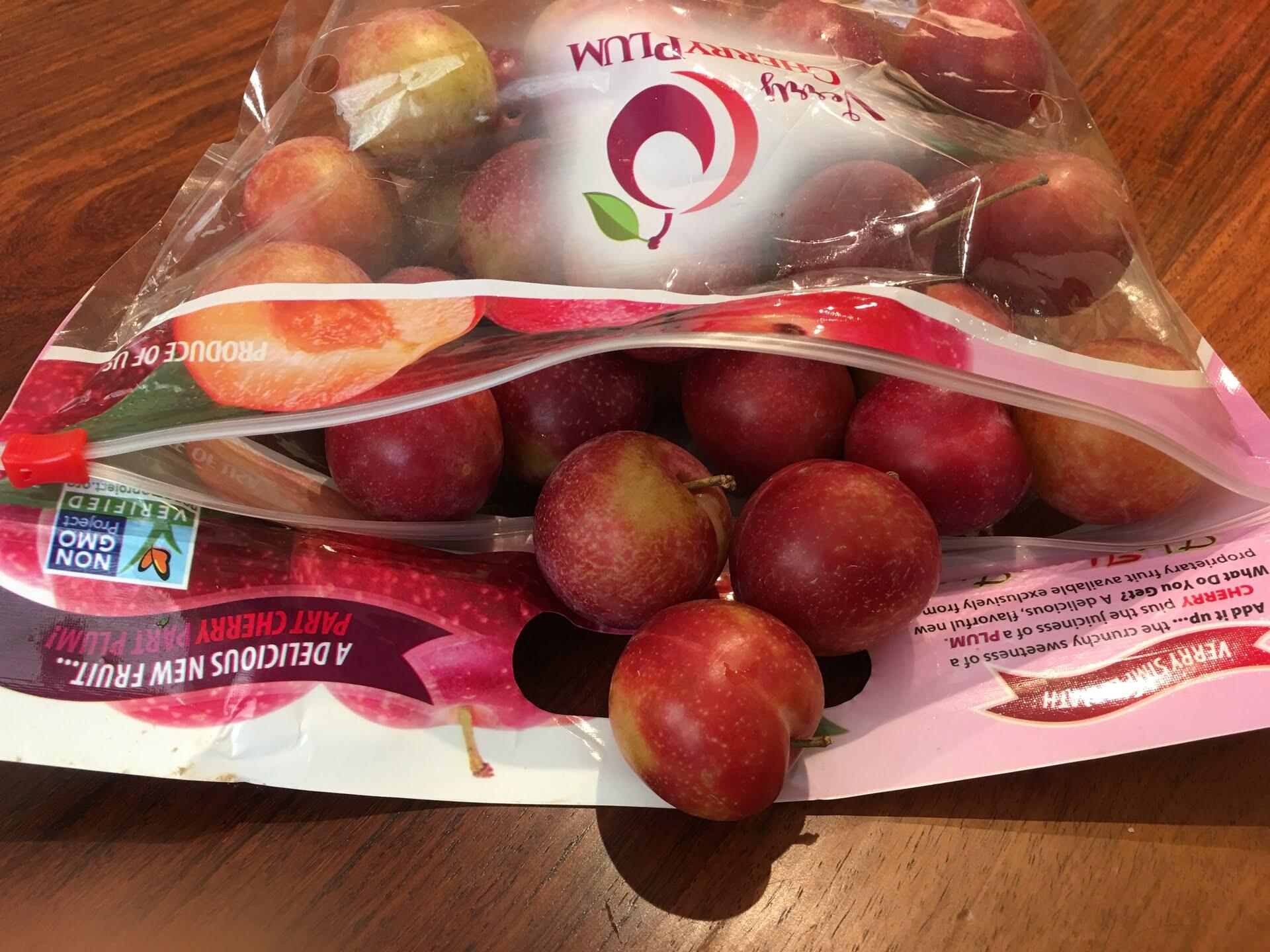
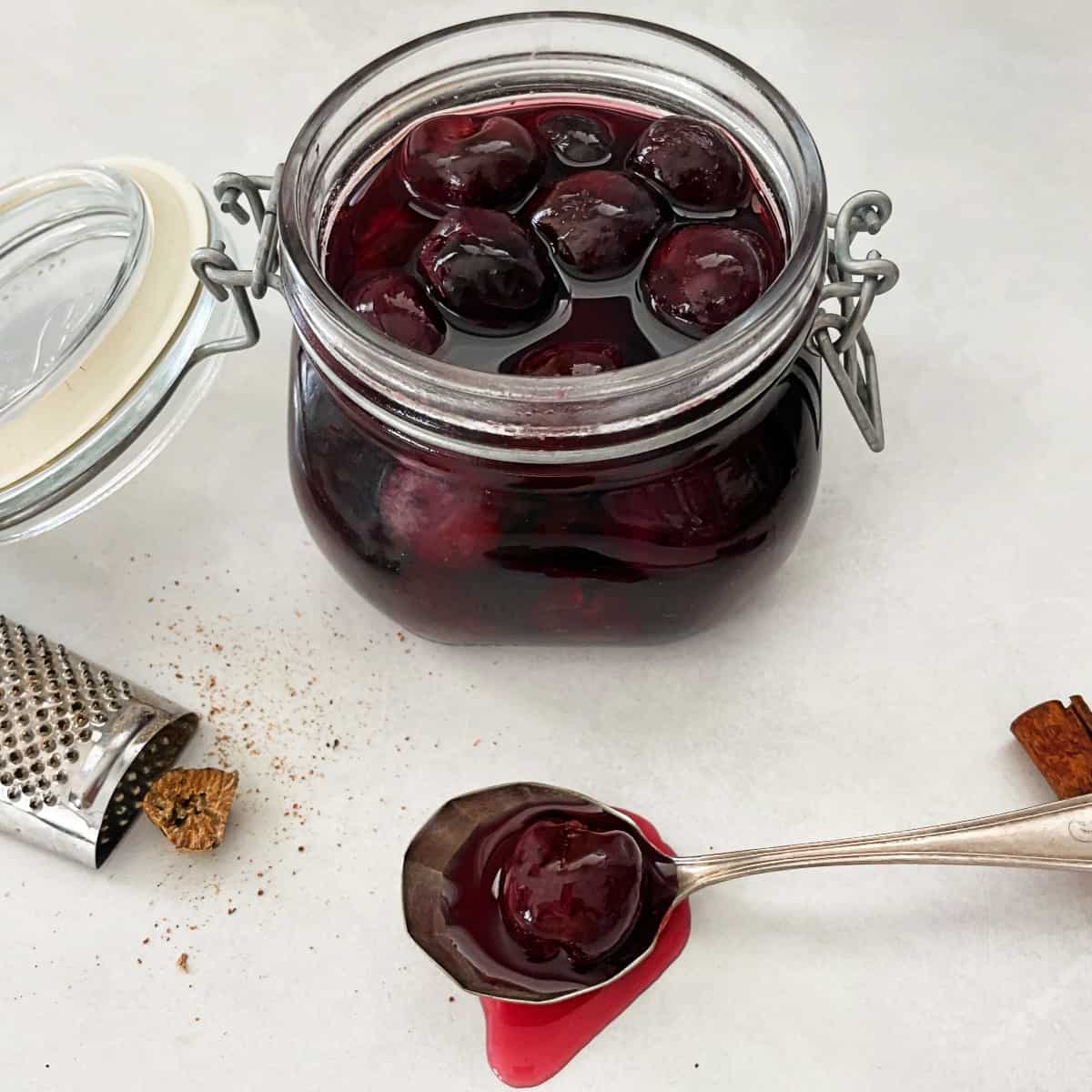

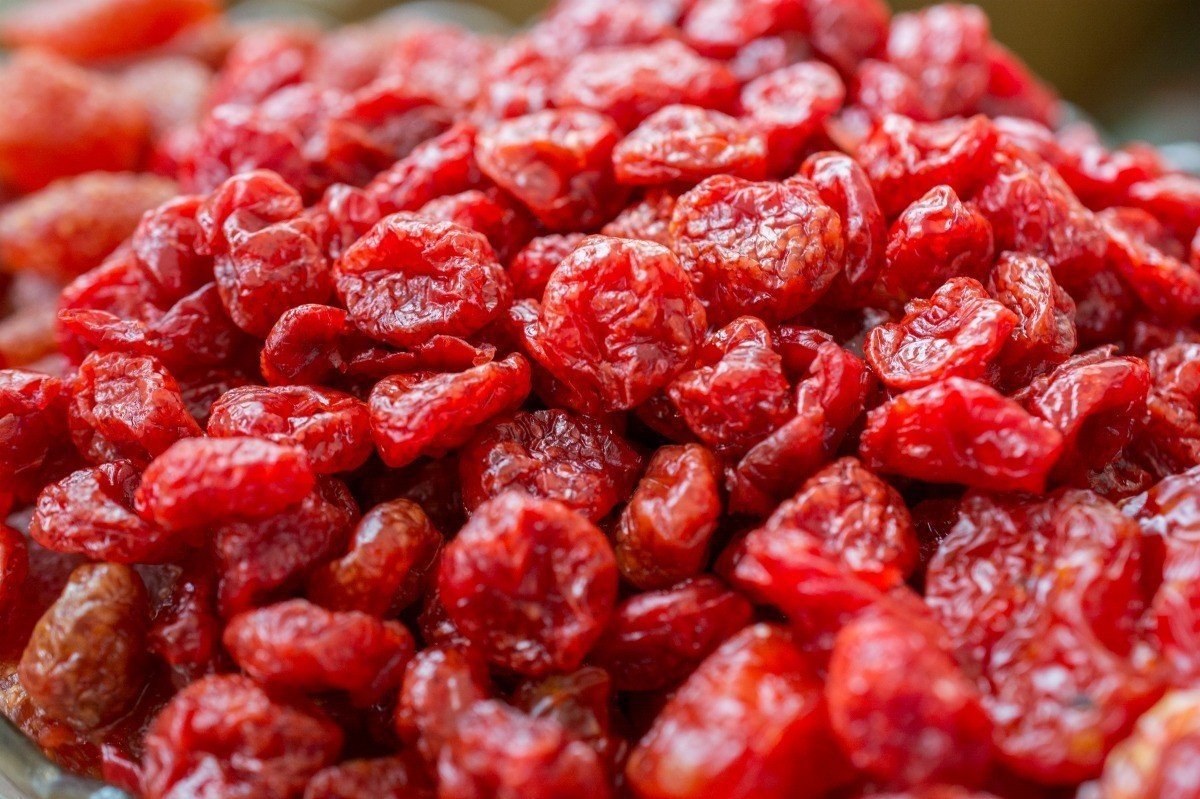
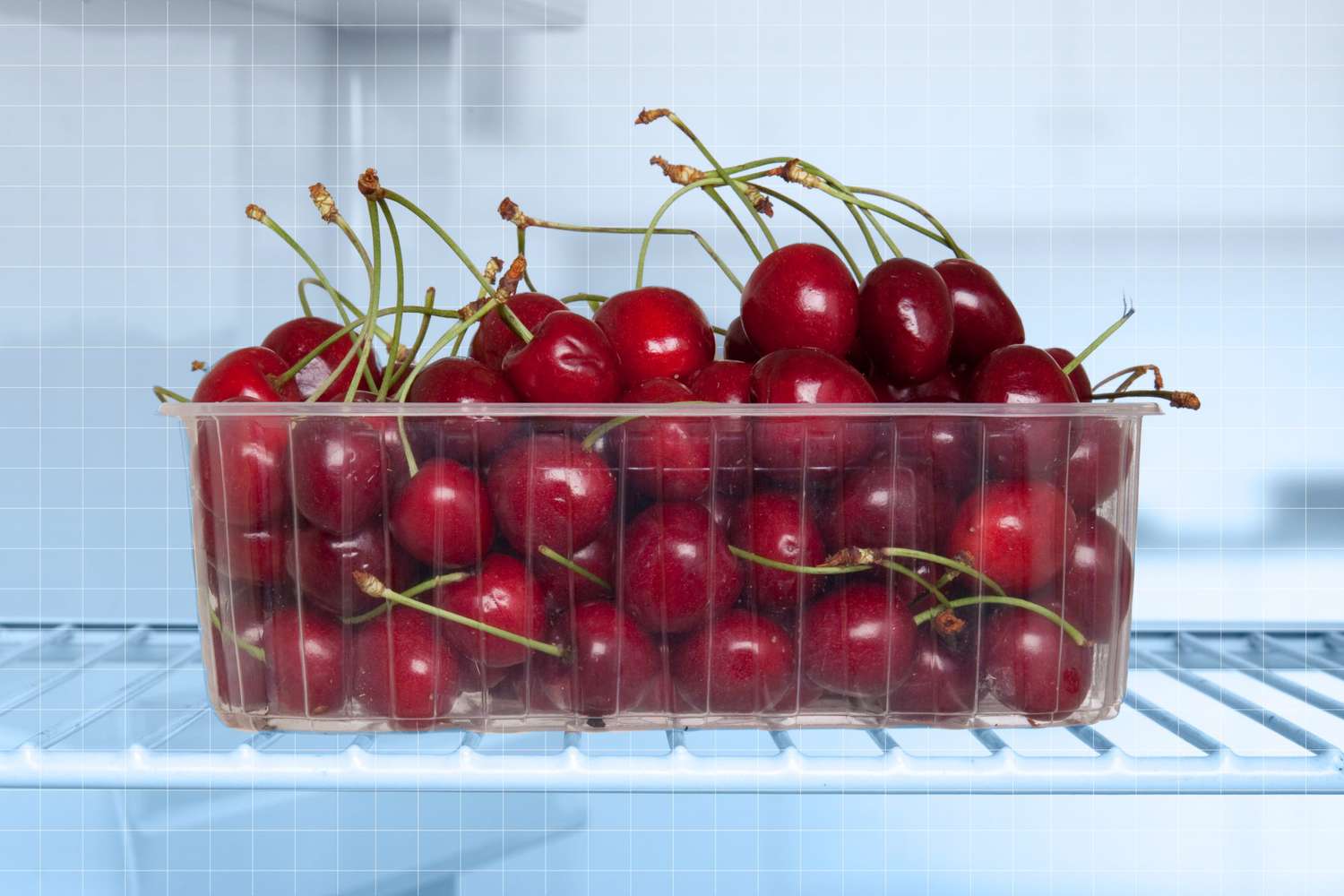

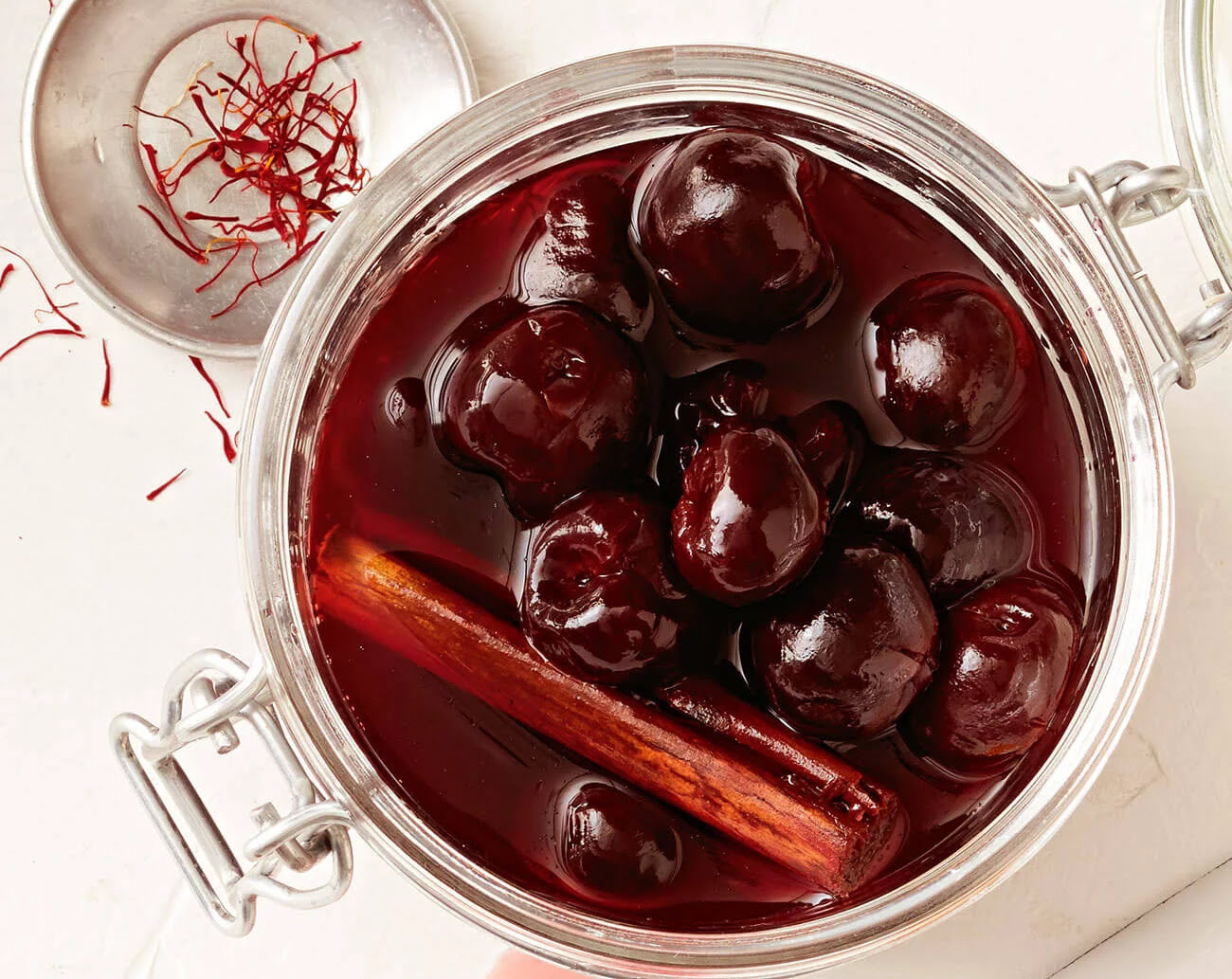


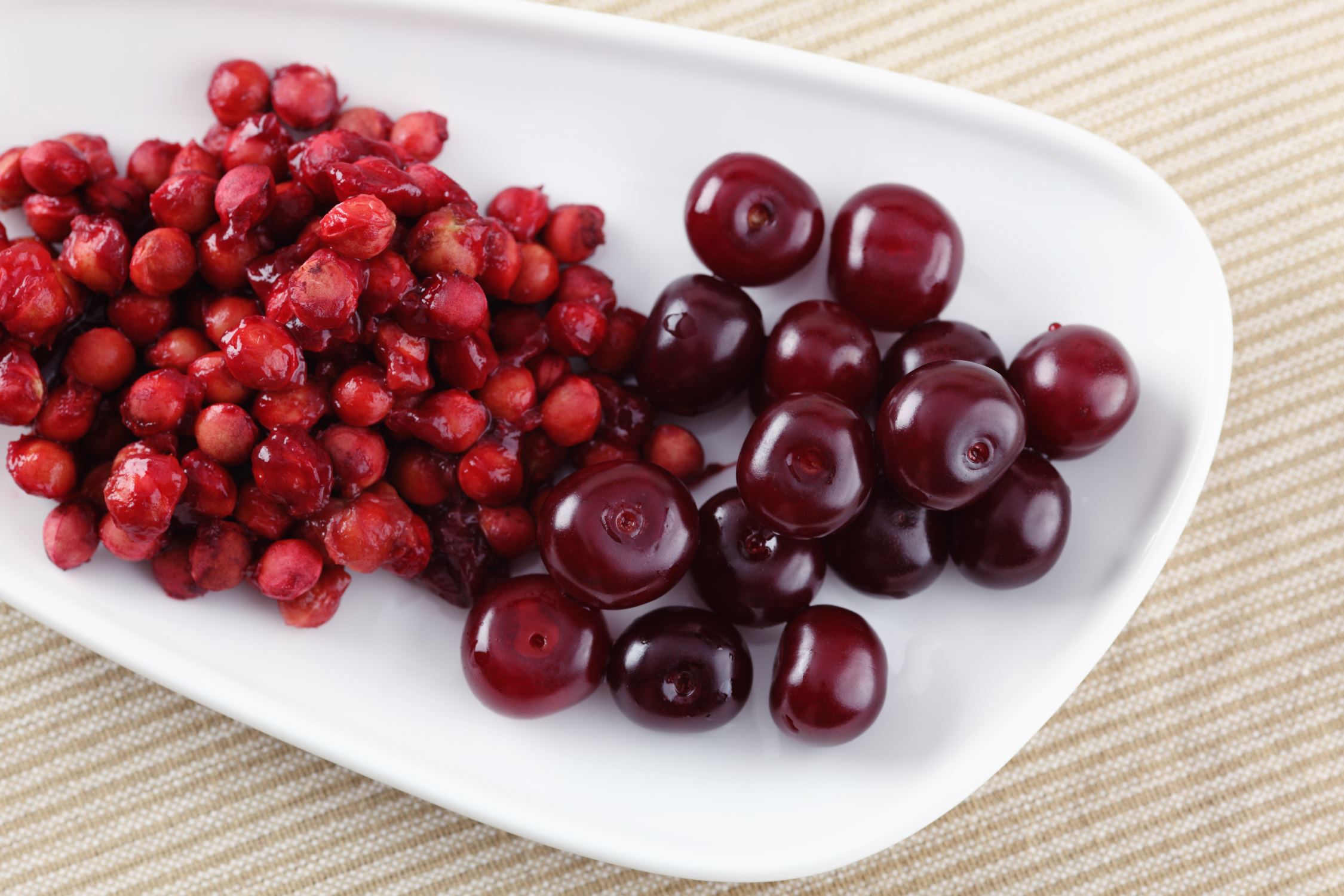



0 thoughts on “How To Store Cherries In The Fridge”